Reducing Stress After Bariatric Surgery
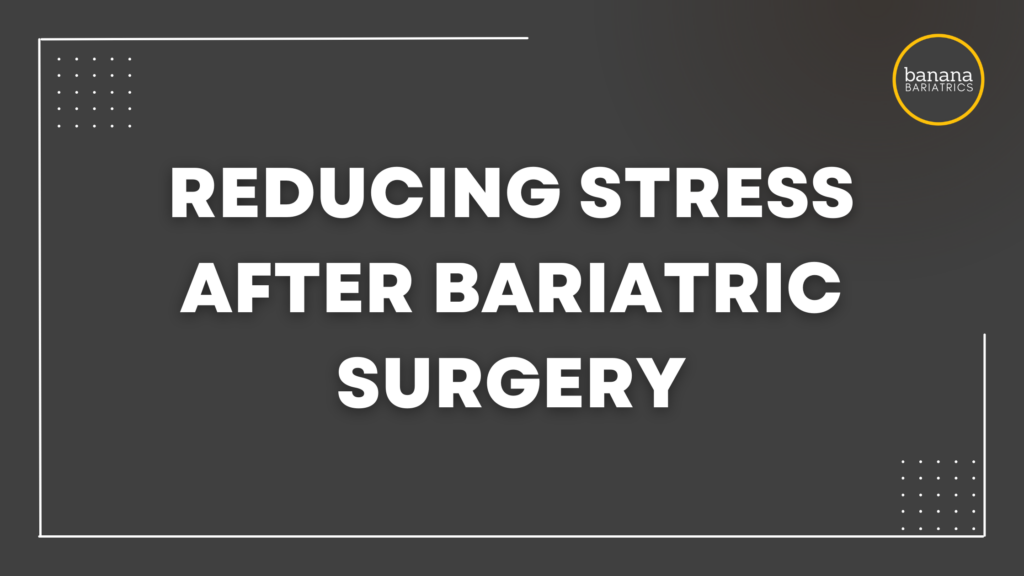
If you’re thinking about having surgery or are in the phase leading up to your surgery date, you may be feeling trepidatious on what life after surgery will be like. Will it be stressful? How long will it take me to recover? What will I be able to eat after surgery? For those who have already had surgery, but are in the early post-operative phages, you may be feeling overwhelmed by the lifestyle re-haul that life after bariatric surgery can entail. In this week’s blog post, we’re going to review the timeline of how long it typically takes after surgery to feel normal again, how to “reset” yourself after surgery, and how reducing stress after bariatric surgery can significantly benefit your body and long-term weight loss.
How Long Does It Take To Feel Normal After Surgery?
After surgery, it can feel like you’re on a roller coaster of emotions. Typically, I tell my patients that they’ll start to feel more “emotionally normal” around 3 months after surgery. The first month after surgery is mainly focused on your recovery, staying hydrated, taking your vitamins, and working towards your protein and calorie goals.
The first month after surgery can feel like you’re in a state of grieving. Old tendencies to go to food for support and comfort may be met with unwanted consequences. Learning to eat slowly, avoiding drinking while eating, and significantly cutting back on portion sizes can be a lot to process. Let alone accepting that you now have new taste buds and strong food aversions that make it tricky to navigate what exactly you even CAN eat!
It can be stressful thinking that you have to have “all of your pieces to the puzzle” completed by the one month mark after surgery. I often reassure my patients that the number one thing to focus on right after surgery is staying hydrated (by drinking > 64oz of water daily- sip sip sip!) and to start taking their vitamins according to their Practice guidelines.
I also reassure my patients to give themselves grace during this trial-and-error time when they’re learning to navigate their new stomach’s wants and needs.
From there, working on getting in 60g+ of protein daily with slow diet progression is the next focus. This can be achievable with protein shakes in the beginning before transitioning towards a regular bariatric staged diet.
Usually, around 6 weeks post-op, most patients are feeling more confident in what their stomach likes and can handle. By 3 months, patients are able to tolerate larger amounts of foods and are able to consume more calories and better hydration, with more hormonal stability as well.
How Do You “Reset” Yourself After Surgery?
Learning what and how (much) to eat after surgery can feel daunting, let alone navigating any other major stressors that may be happening concurrently in your life. So how do you handle everything hitting you at the same time? Is there a way to “reset” yourself after surgery that will help you feel more in control of all of the things happening to you in your life?
First, return to the basics. When all else fails, ask yourself; “How consistently am I doing the bariatric basics?” That is- drinking >64oz of water, 60g+ protein, vitamins, and exercising (>3x strength training/ week) every day. You’ll be stronger in some of these areas than in others. Focus on the ones that need more support and aim for consistency in your weaker habits throughout the week.
By refocusing your attention on the basics, you’ll have something that you’ll be making progress toward. Remember- progress OVER perfection. During this time, you are simultaneously proving to yourself that you ARE making strides and improvements in your health. You CAN trust yourself through this process and are capable of making healthier lifestyle changes that will stick with you for life.
Mindset work is very important during this time. Celebrate all of your small wins. Did you remember to take your entire vitamin regimen correctly for the day? That’s a win! You’re making progress toward consistency- well done!
By giving yourself these small wins, you’re building your confidence and “Yes, I CAN do this!” attitude. This will translate into other areas of your life that may be giving you stress.
For example, do you have a family member that’s projecting their insecurities onto you about your own weight loss or bariatric journey? You CAN establish boundaries with them. You CAN stand up for your health goals. You ARE capable! Just like you can hit the gym throughout the week, or get through your 20 ounce water bottle a few times throughout the day, you CAN stick up for yourself against those who may not be supporting you the way you need (or expect) them to.
And always remember- there will still be things that happen to you that will cause you significant stress but are out of your control. If you can accept that these things are totally out of your control and that you may need to let it go (despite how challenging that is), that’s where I would mentally start. To help you through this process, I highly recommend reaching out to a Bariatric Psychologist as well. They can help you navigate these challenging times and understand more clearly what life looks like as a bariatric patient.
Can Reducing Stress After Bariatric Surgery Cause Weight Loss?
Yes! Our body’s stress hormone- Cortisol- can make it challenging for us to lose weight. Reducing stress can have a powerful impact on the scale and other holistic areas of our health. Stress reduction can help with sleep, digestion, and reduction in flares of inflammatory conditions.
What do you enjoy doing that reduces your stress? Playing an instrument, listening to music, walking out in the sunshine? What about listening to a positive affirmational podcast, doing a group fitness class, or reading a book?
Find a non-food based activity that can help you relax and unwind a bit to take the stress off your shoulders. And whenever possible, focus on getting at least 7 hours of sleep at night! This will help tremendously too.
In Summary
While it may take a few months after surgery to feel “normal” again, there will always be times down the road from surgery where you’ll need to reset and to go back to the bariatric basics. In doing so, you’ll reclaim control and a sense of stress relief knowing that you are making progress toward your health. In this process, it will nurture more self confidence that you can translate into other areas of your life to give yourself a stronger voice to advocate for your health goals and personal needs. While it may be hard to reduce stress in all areas of your life completely, it is essential to focus on doing so in order to help with weight loss and to maintain your progress lifelong after surgery.
Are You Struggling With Weight Regain After Surgery?
Weight regain after surgery is common and occurs in ~30% of patients…but it doesn’t have to be the “end all” of your weight loss surgery journey!
Our FREE Weight Regain Resource will help you:

- Learn the reasons why you may experience weight regain after surgery
- Identify unhealthy habits that can lead to weight regain
- Find additional support and accountability with getting back-on-track with your weight loss

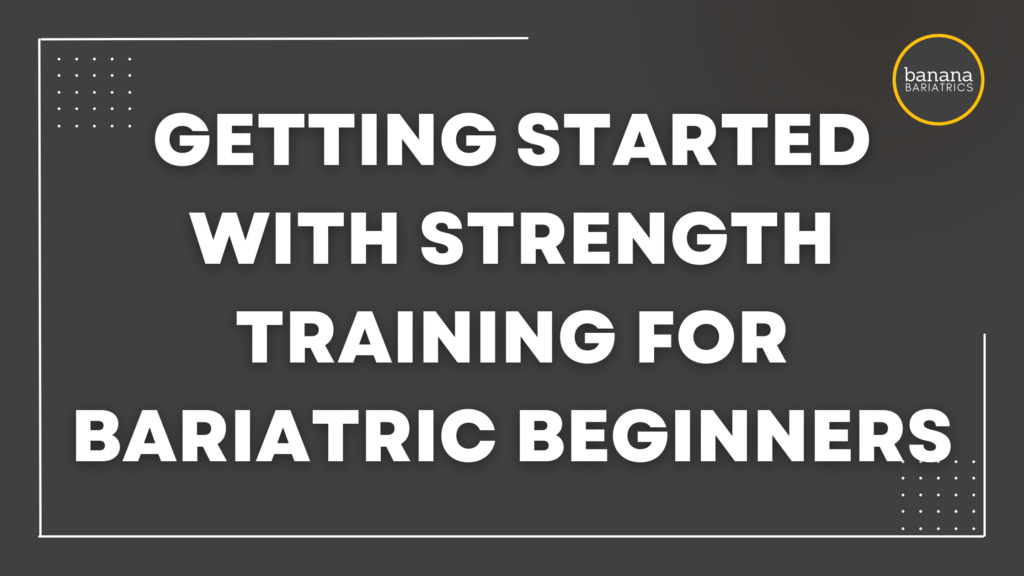
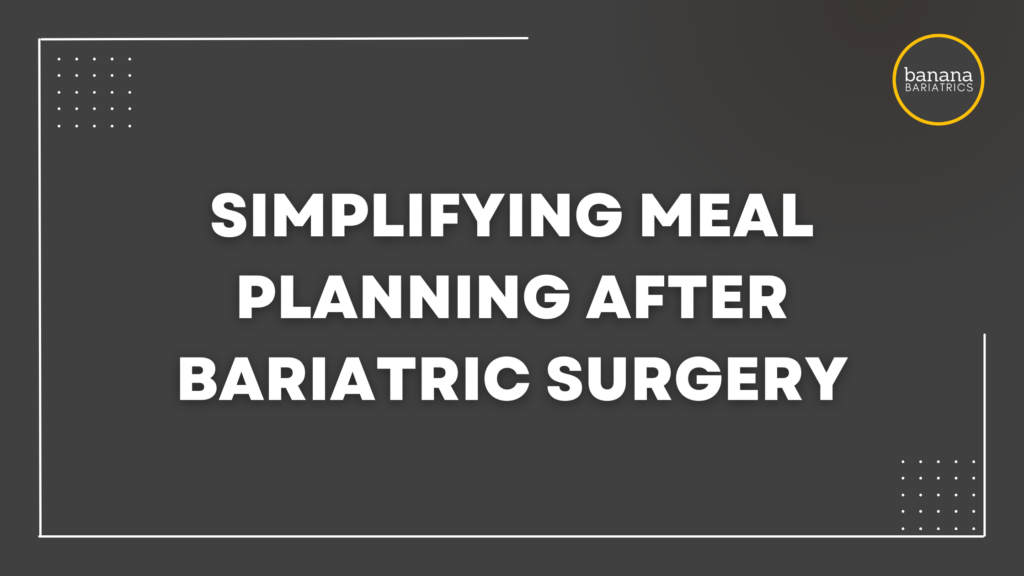
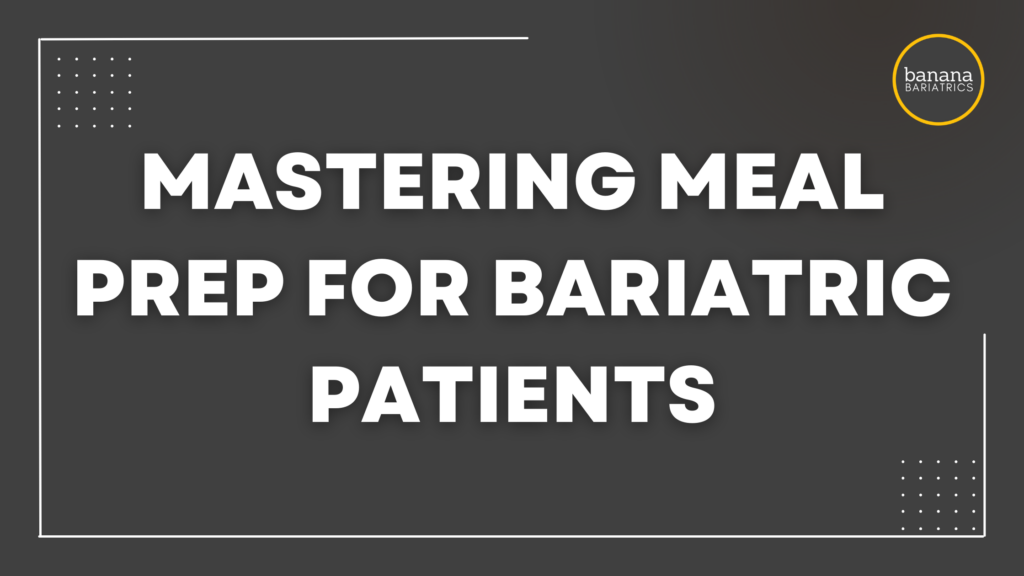
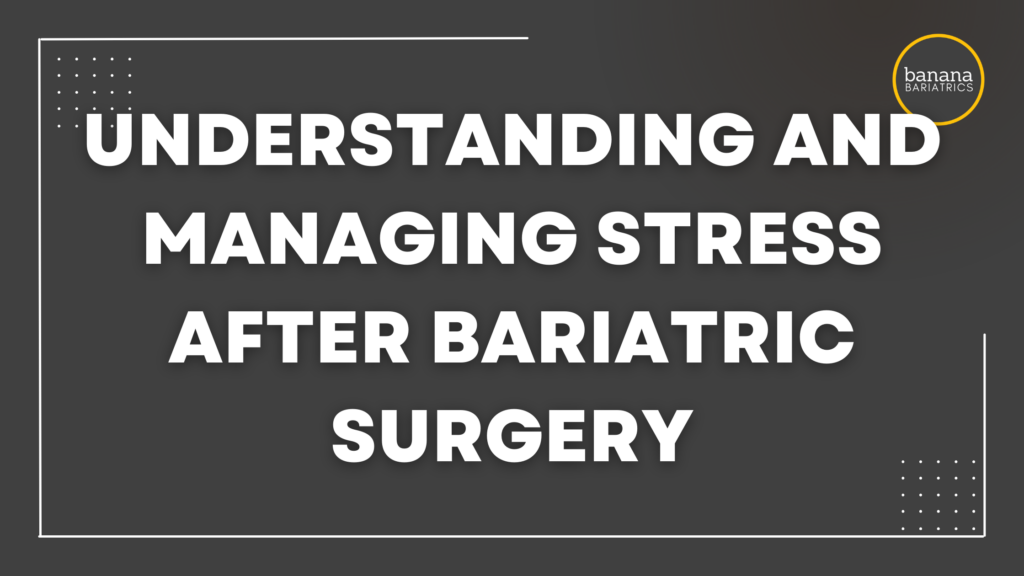
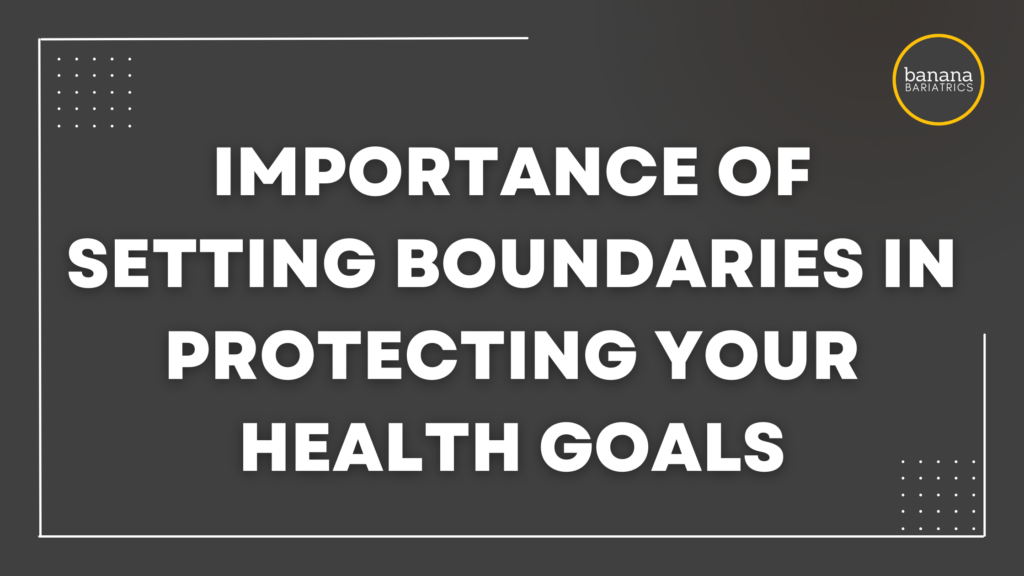
Responses